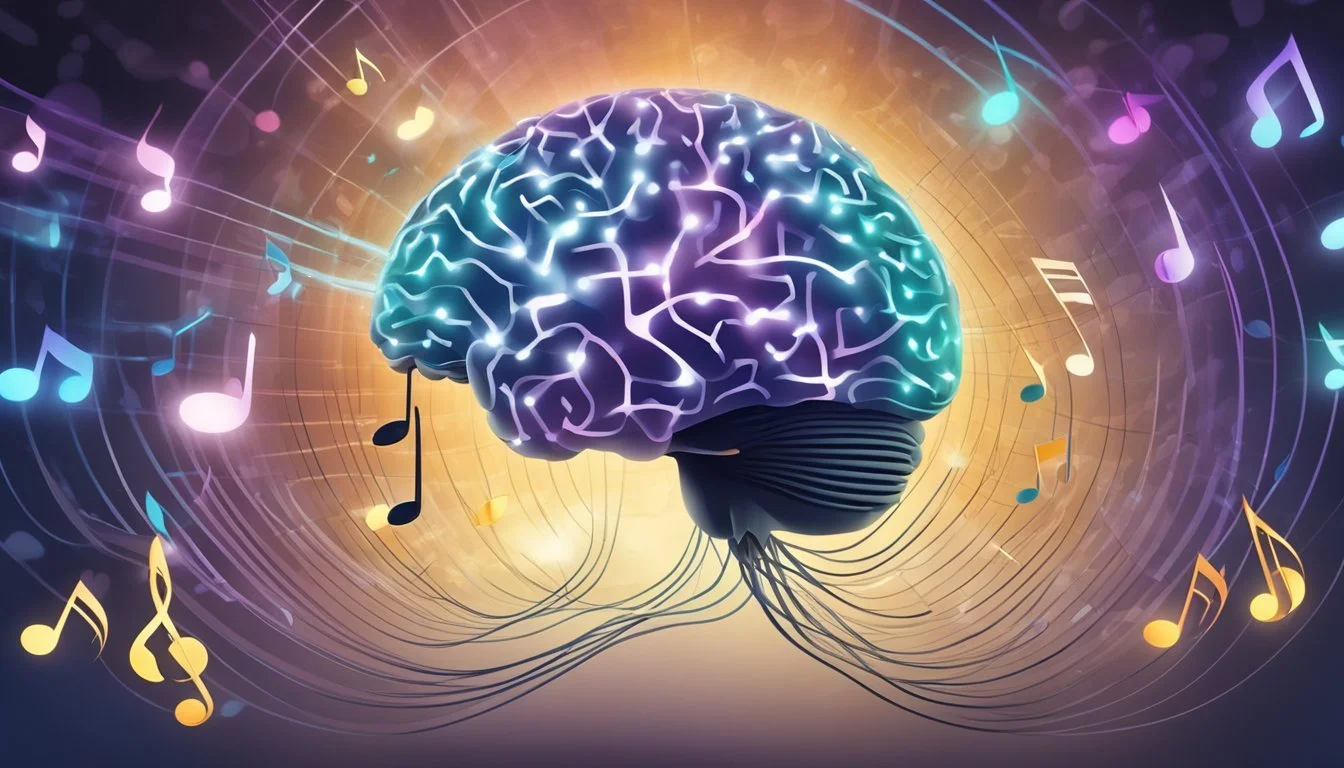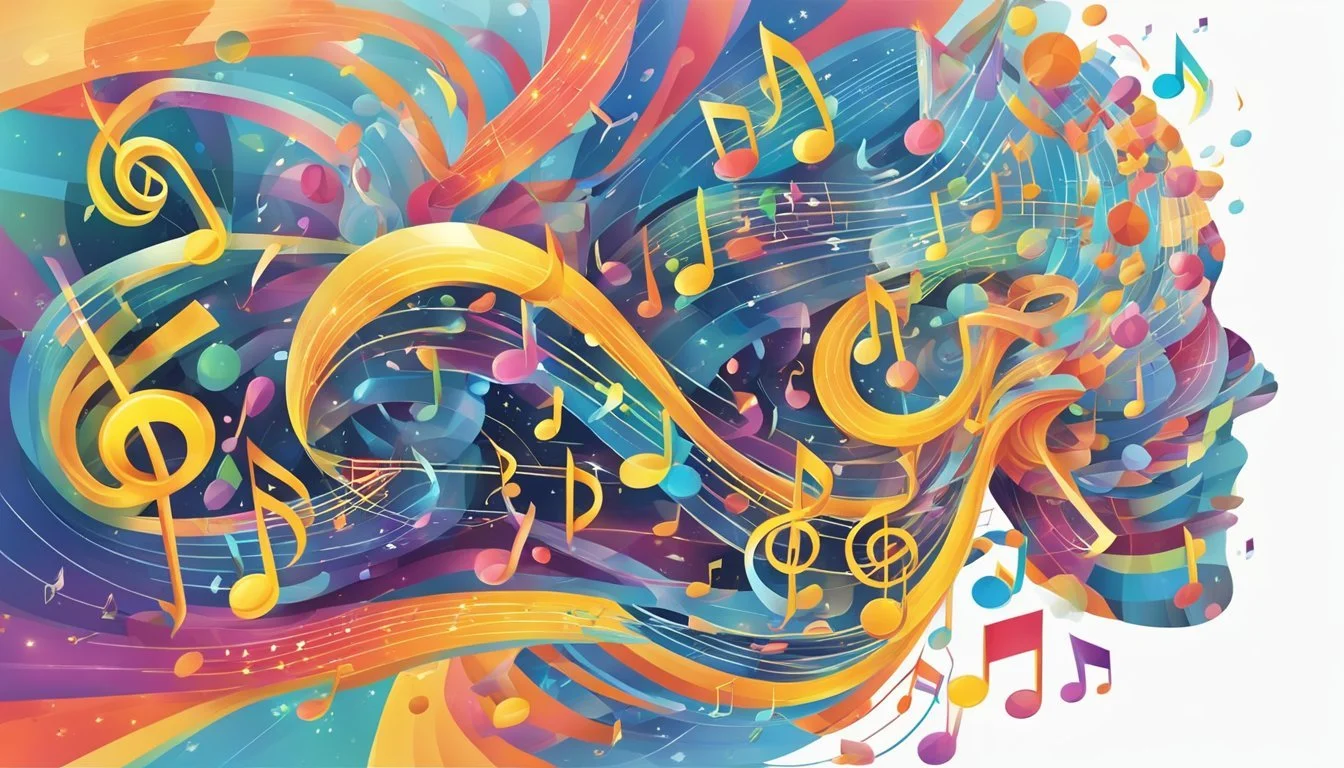7 Documentaries That Show How Music Affects the Brain
Exploring Neuroscience Through Sound
Music has long captivated humanity with its ability to evoke emotions, spark memories, and influence behavior. Scientists and researchers have increasingly turned their attention to understanding the profound effects music has on the human brain. Through advanced imaging techniques and rigorous studies, they have uncovered fascinating insights into how our minds process and respond to musical stimuli.
Documentaries exploring the intersection of music and neuroscience offer viewers a window into this complex and intriguing field of study. These films showcase cutting-edge research, personal stories, and expert interviews that illuminate the power of music to shape our cognitive processes, emotional states, and even physical well-being. From classical compositions to popular hits, the impact of various musical genres on brain function continues to yield surprising discoveries and potential therapeutic applications.
1) "Alive Inside" by Michael Rossato-Bennett
"Alive Inside" is a 2014 documentary that explores the profound impact of music on people with dementia and Alzheimer's disease. The film follows social worker Dan Cohen as he introduces personalized music to elderly patients in nursing homes.
Through intimate portraits, the documentary showcases remarkable moments of awakening as patients respond to familiar tunes from their past. These musical interventions often spark memories and emotions long thought lost.
Rossato-Bennett's camera captures the joy and renewed vitality that emerges when patients connect with their favorite songs. The film highlights how music can reach parts of the brain unaffected by dementia, temporarily restoring a sense of identity and improving quality of life.
"Alive Inside" won the Audience Award for U.S. Documentary at the 2014 Sundance Film Festival. It has since inspired discussions about the therapeutic potential of music in healthcare settings and sparked initiatives to bring personalized music to more patients.
https://en.wikipedia.org/wiki/Alive_Inside:_A_Story_of_Music_and_Memory
2) "Music and the Brain" from NOVA
NOVA's "Musical Minds" explores the fascinating relationship between music and the human brain. This documentary delves into neurologist Oliver Sacks's research on the profound impact of music on neurological conditions.
The program examines several case studies, including a man who became obsessed with piano music after being struck by lightning. It also features individuals with Williams syndrome, who display extraordinary musical abilities despite cognitive impairments.
Through these stories, the documentary illustrates how music can activate multiple areas of the brain simultaneously. It highlights music's potential to evoke emotions, trigger memories, and even aid in neurological rehabilitation.
"Musical Minds" showcases cutting-edge neuroimaging techniques that allow scientists to observe brain activity during musical experiences. These insights shed light on music's role in cognitive function, memory, and emotional processing.
The documentary underscores the unique power of music to affect the brain in ways that other stimuli cannot, offering potential therapeutic applications for various neurological disorders.
https://www.pbs.org/wgbh/nova/musicalmind/
3) "The Music Instinct: Science & Song" by Elena Mannes
"The Music Instinct: Science & Song" explores the profound impact of music on the human brain and body. This documentary delves into groundbreaking research on music's effects on cognition, emotions, and physical well-being.
Renowned scientists and musicians contribute their insights, examining how music influences brain development and neural processes. The film showcases studies on infants' responses to musical patterns and the therapeutic potential of music for various conditions.
Mannes investigates the evolutionary origins of music and its role in human social bonding. The documentary presents compelling evidence for music's ability to enhance memory, reduce stress, and improve overall cognitive function.
Through captivating visuals and expert interviews, "The Music Instinct" demonstrates how music engages multiple brain regions simultaneously. It highlights the universal nature of musical appreciation across cultures and age groups.
This thought-provoking documentary offers viewers a deep understanding of music's power to shape our minds and lives. It presents complex scientific concepts in an accessible and engaging manner.
https://www.pbs.org/wnet/musicinstinct/
4) "Sound and Fury" by Josh Aronson
"Sound and Fury" explores the impact of cochlear implants on deaf culture and identity. Released in 2000, this documentary follows the Artinian family as they grapple with decisions about this hearing technology for their deaf children.
The film showcases the complex emotions and cultural considerations surrounding deafness and medical interventions. It highlights the divide between those who view deafness as a disability to be fixed and those who see it as a cultural identity to be preserved.
Through intimate family discussions, "Sound and Fury" reveals how music and sound shape our understanding of the world. It raises thought-provoking questions about language acquisition, social belonging, and the role of technology in shaping human experiences.
The documentary provides insight into how the brain processes auditory information and adapts to new sensory inputs. It demonstrates the profound effects that hearing or its absence can have on neural development and cognitive function.
"Sound and Fury" offers a unique perspective on the intersection of neuroscience, culture, and personal identity in relation to sound and music.
https://www.imdb.com/title/tt0240912/
5) "Chasing Sound" by Leo Beranek
"Chasing Sound" is a documentary that explores the life and innovations of Les Paul, a pioneering musician and inventor. The film showcases Paul's contributions to music technology and his impact on the recording industry.
Les Paul's inventions, including the solid-body electric guitar and multi-track recording, revolutionized music production. The documentary highlights how these advancements changed the way musicians create and listeners experience music.
Through interviews and archival footage, the film demonstrates how Paul's innovations influenced the brain's perception of sound. It examines the ways in which his techniques allowed for new sonic possibilities and expanded the creative potential of musicians.
The documentary also touches on the neurological aspects of music appreciation. It illustrates how Paul's inventions enabled more complex and layered recordings, potentially stimulating different areas of the brain during listening experiences.
"Chasing Sound" offers insights into the intersection of technology, music, and neuroscience. It presents a compelling narrative about how one man's innovations shaped the auditory landscape of modern music.
https://www.pbs.org/wnet/americanmasters/les-paul-chasing-sound/92/
6) "The Music Never Stopped" by Jim Kohlberg
"The Music Never Stopped" is a compelling drama that explores the power of music in healing brain trauma. Directed by Jim Kohlberg, the film is based on a case study by renowned neurologist Dr. Oliver Sacks.
The story follows Gabriel, a man who develops a brain tumor that impairs his ability to form new memories. His father Henry, played by J.K. Simmons, discovers that music from Gabriel's youth can temporarily restore his son's cognitive functions.
Through the familiar songs of Bob Dylan, The Beatles, and The Grateful Dead, Gabriel reconnects with his past and rebuilds his relationship with his father. The film showcases how music can bridge generational gaps and unlock memories long thought lost.
Kohlberg's directorial debut received praise for its sensitive portrayal of family dynamics and the transformative effects of music on the brain. J.K. Simmons delivers a sympathetic and nuanced performance as the father struggling to reconnect with his son.
While not strictly a documentary, "The Music Never Stopped" offers a dramatized look at the fascinating intersection of neuroscience and music therapy.
https://www.imdb.com/title/tt1613062/
7) "Score: A Film Music Documentary" by Matt Schrader
"Score: A Film Music Documentary" explores the creative process behind film music composition. Directed by Matt Schrader, the film features interviews with renowned composers like Hans Zimmer, Danny Elfman, and John Williams.
The documentary delves into the art of film scoring, showcasing how music enhances emotional impact in movies. It offers viewers a rare glimpse into the techniques and inspirations of top Hollywood composers.
Schrader's film highlights the collaborative nature of film music creation. It demonstrates how composers work with directors and other film professionals to craft the perfect sonic backdrop for each scene.
"Score" examines the evolution of film music throughout cinema history. The documentary covers various styles and approaches, from orchestral compositions to electronic scores.
Featuring insights from over 60 film industry professionals, "Score" provides a comprehensive look at this often-overlooked aspect of filmmaking. It illuminates the crucial role music plays in shaping audience experiences.
https://en.wikipedia.org/wiki/Score:_A_Film_Music_Documentary
Neuroscience of Music
Music profoundly impacts our brains, activating multiple regions and triggering complex neurological processes. Scientific studies have revealed fascinating insights into how our minds respond to and process musical stimuli.
How Music Stimulates Brain Activity
Music engages various areas of the brain simultaneously. The auditory cortex processes sound, while the motor cortex and cerebellum respond to rhythm. The limbic system, responsible for emotions, becomes active when we listen to music we enjoy.
Brain imaging studies show increased activity in the prefrontal cortex during musical tasks. This area is involved in attention, planning, and decision-making. Music also stimulates the corpus callosum, enhancing communication between the brain's hemispheres.
Listening to music activates neural networks associated with memory. This explains why certain songs can evoke vivid recollections of past experiences.
The Role of Dopamine in Music Enjoyment
Dopamine, a neurotransmitter linked to pleasure and reward, plays a crucial role in our enjoyment of music. Brain scans reveal dopamine release in the nucleus accumbens when people listen to music they find pleasurable.
This dopamine surge creates a sense of euphoria, similar to the brain's response to food or drugs. It explains why music can be addictive and why we often seek out familiar tunes.
The anticipation of favorite musical moments also triggers dopamine release. This anticipatory response heightens the emotional impact of music, contributing to its powerful effect on mood and well-being.
Emotional Impact of Music
Music profoundly influences our emotions and mental states. It can evoke powerful feelings, alter moods, and provide therapeutic benefits for various psychological conditions.
Connection Between Music and Mood
Music activates multiple areas of the brain, including the hippocampus, amygdala, and limbic system. These regions play crucial roles in emotional processing and memory formation.
Certain songs can trigger specific emotions or memories, transporting listeners to past experiences. This phenomenon occurs due to the strong neural connections formed between music, emotions, and autobiographical memories.
Different musical elements affect mood in various ways. Tempo, rhythm, and pitch contribute to the emotional tone of a piece. Fast-paced, upbeat songs often induce feelings of happiness and excitement, while slower melodies may evoke calmness or melancholy.
Therapeutic Benefits of Music
Music therapy has shown promising results in treating various mental health conditions. It can reduce symptoms of depression, anxiety, and stress by promoting relaxation and emotional release.
For individuals with neurological disorders, music can improve cognitive function and motor skills. Parkinson's patients, for example, may experience enhanced gait and balance when moving to rhythmic beats.
Music also aids in pain management by distracting patients and stimulating the release of endorphins, the body's natural pain relievers. This effect has been observed in both chronic pain sufferers and those undergoing medical procedures.
In dementia care, familiar songs can evoke memories and improve mood, potentially reducing agitation and improving quality of life for patients.



